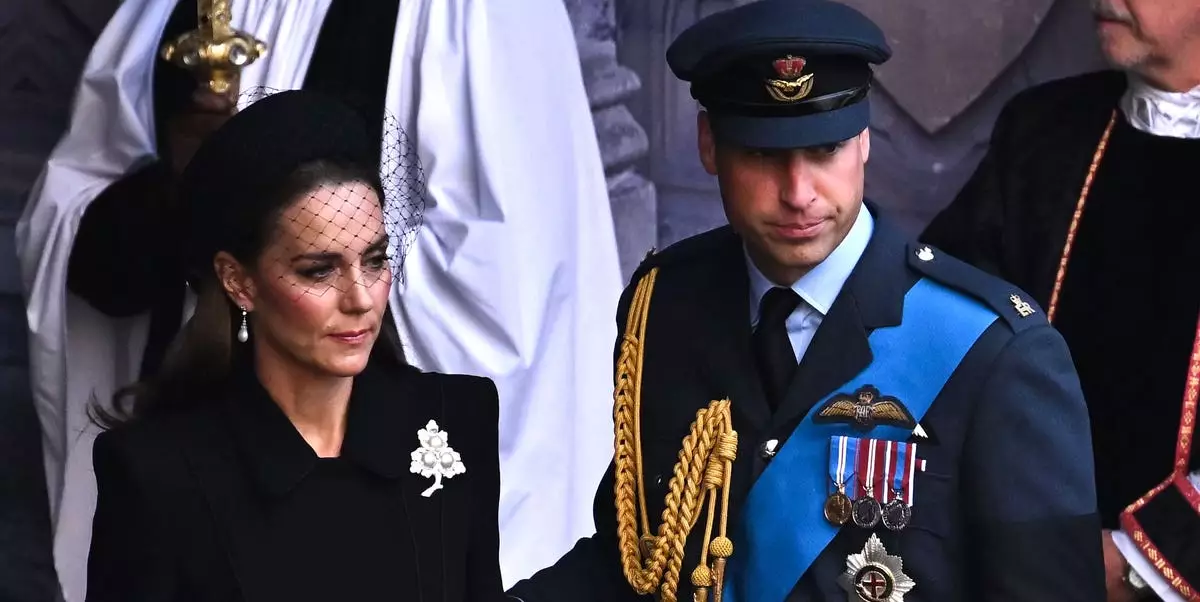On April 26, 2025, Prince William emerged as a pivotal figure representing the British royal family at the funeral of Pope Francis in St. Peter’s Basilica, Vatican City. This event marked a poignant moment in history, reflecting the deep respect and acknowledgment the royal family extends towards global leaders, particularly religious figures who have played a significant role on the world stage. While King Charles III’s absence stirred some discussions, it was informed by the longstanding tradition that monarchs traditionally do not attend funerals. This careful adherence to protocol underscores the complexities of royal engagements and their implications on international relations.
Prince William’s attendance signifies more than a mere adherence to tradition. It illustrates the evolving role of the British monarchy in a world that increasingly seeks connection through shared values and empathy. The decision to send the Prince symbolizes a bridging of gaps, showing that the monarchy acknowledges the profound impact Pope Francis had on not only the Catholic Church but also on social justice, interfaith dialogue, and humanitarian issues. William’s presence not only honors the Pope’s legacy but also reinforces the continuing relevance of the monarchy within global dialogues of compassion and leadership.
Absence of the Princess of Wales: A Tradition Worth Exploring
Kate Middleton’s absence from the funeral, while notable, aligns with past royal traditions when it comes to attending significant ceremonies. Drawing from historical precedents, it is easy to see a pattern in royal engagements: often, partners of heirs do not accompany them during formal events, particularly those of somber nature. This was mirrored in the past when then-Prince Charles attended the funeral of Pope John Paul II without Camilla by his side. Such historic precedents subtly illustrate a protocol that has been long-standing but also calls into question the evolution of royal contributions to global events.
While the exclusion of the Princess of Wales appears to uphold longstanding traditions, it does not diminish the significance of William’s individual representation. In fact, this engagement can also be viewed as an opportunity for William to establish his presence on an international platform, steering his legacy while respecting the historical constructs of the royal family.
The Reflection of a Grieving World
As Pope Francis passed away at the age of 88, the heartbreak felt nationwide and across the globe cannot be overstated. In his statement following the Pope’s death, King Charles articulated heartfelt sentiments, capturing the essence of Pope Francis’ contributions—not merely as a religious leader but as a beacon of hope and compassion for the global community. The King’s words, infused with personal reflections, struck a chord and highlighted the significance of the Pope’s work in advocating for unity and caring for the planet.
Pope Francis’s legacy resonates deeply in today’s climate, where issues of environmental degradation and social justice loom large. With his tireless advocacy for the marginalized and his belief in stewardship of the Earth, the Pope was a profound voice that challenged the faithful and non-faithful alike to consider their roles within the broader tapestry of humanity. His departure leaves an indelible mark, one that requires thoughtful remembrance and acknowledgment by leaders like William who can carry forward these vital conversations.
A Modern Monarchy in Transition
Prince William’s role at this solemn event aligned with a broader narrative regarding the monarchy’s relevance in contemporary society. As an institution that is often scrutinized, the British royal family must navigate through the expectations of tradition while also adapting to a rapidly changing global landscape. By honoring Pope Francis, William is not only paying tribute to a significant religious figure but also signaling a modern approach to royal duties—one that recognizes that authority is as much about humility and connection as it is about lineage.
Furthermore, in the face of adversity and loss, the monarchy serves not only to represent historical continuity but also to champion shared human experiences such as grief and reverence. In a world where divisiveness often prevails, the royal presence at events such as these offers a reminder of the power of grace and the importance of leadership grounded in empathy. Prince William’s presence at Pope Francis’s funeral reaffirms the ongoing dialogue of compassion and goodwill that leaders across the globe must continue to uphold.

